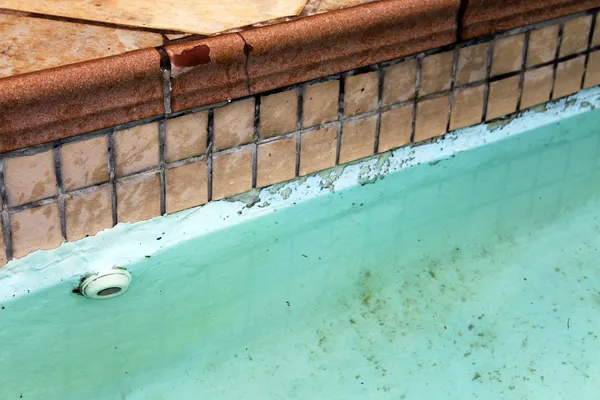Key Takeaways:
- Regular maintenance is crucial for a healthy septic system.
- Non-biodegradable materials should not be flushed into the septic tank.
- Use professional services when needed.
- Consider eco-friendly household products to reduce septic system strain.
Contents
Understanding How Your Septic System Works
Septic systems are pivotal in wastewater management for homes not connected to city sewage lines. These systems efficiently handle waste yearly, ensuring a clean and sanitary home environment. They use naturally occurring processes to manage and decompose solid waste which accumulates in the septic tank. At the same time, the remaining wastewater is gradually filtered through the drain field to prevent pollution of local water sources. Homeowners need to familiarize themselves with the basic operations of their septic system to recognize potential problems before they cause significant damage. Knowing the ins and outs can be highly beneficial if you recently moved to a home with a septic system or have dealt with them for years. Professional septic services can also provide more detailed understanding to ensure your system’s longevity.
The septic tank component serves as the primary collection point where microbial breakdown of organic materials happens. As the wastewater exits the home, it enters the septic tank. Scum is created when lighter particles and oils float to the top, while heavier substances eventually sink to the bottom to form sludge. Fortunately, gaining a broader knowledge of how your septic system functions empowers you to manage it better, minimizing risks and enhancing efficiency.
Simple Maintenance Tips to Follow
- Inspect and Pump Regularly: One of the most effective ways to ensure the health of your septic system is to have it inspected and pumped regularly. Depending on the household size and system usage, this generally ranges from every three to five years. Regular inspections help identify issues early, such as leaks or build-up, before they escalate into more severe problems. Moreover, regular septic tank pumping reduces sludge and scum accumulation, which can be detrimental to system function if left unchecked.
- Avoid Overloading: Septic systems are designed to handle specific volumes of water and waste. Excessive water usage can strain the system, inhibiting its ability to process waste effectively. Simple water conservation habits can significantly alleviate pressure on the system. Fixing leaky faucets or running full loads of laundry across the week instead of all at once can distribute wastewater flow more evenly, ensuring the septic system functions optimally without stress.
What Not to Flush
Many people underestimate improper disposal practices’ impact on a septic system. Flushing inappropriate items is one of the most common causes of septic issues and can quickly lead to costly repairs. Always remember to flush only waste and toilet paper. Items like sanitary products, baby wipes, and paper towels can create obstructions. Similarly, greasy substances can harden and contribute to blockages within pipes, leading to slow drainage or backups. Hazardous chemicals and oils can disrupt the natural bacterial balance necessary for waste decomposition in the septic tank, affecting overall efficiency and even causing contamination.
The Role of a Professional in Septic Maintenance
While regular DIY maintenance practices can help extend the lifespan of your septic system, professional intervention is often needed for more complex tasks. Technicians bring expertise and tools critical for thorough system assessments, pumpouts, and repairs. Their insights can prevent minor issues from escalating into major problems, ensuring that your septic system operates efficiently. An expert can also offer valuable advice tailored to your system and household needs.
Eco-Friendly Products to Protect Your Septic System
Choosing the right household products can profoundly impact septic system longevity and environmental health. Many conventional cleaning agents contain harsh chemicals that disrupt bacterial balance in septic tanks, vital for effective waste breakdown. Eco-friendly alternatives are designed to minimize environmental harm, utilizing natural ingredients that pose no risk to the septic system’s bacteria. You are actively lowering pollution and maintaining the long-term operation of your septic system by including these products into your everyday routine.
Recognizing Signs of Septic Failure
The early detection of septic problems can save homeowners considerable time and money. Slow-draining fixtures, persistent sewage odors in or around your home, water pooling in the yard, or unusually green grass over the drain field are all warning signs that demand immediate attention. These symptoms can indicate issues ranging from clogs to complete system failures. In such events, contacting a professional who can diagnose and resolve the issue efficiently is recommended. Ignoring these indicators may result in costly repairs, health risks, and additional property damage.
Conclusion: The Benefits of a Well-Maintained Septic System
Investing time in maintaining your septic system is wise for any homeowner, promoting a hygienic living environment and reducing potential health risks. You ensure the system’s performance, longevity, and reliability through consistent care and appropriate professional guidance. This translates to cheaper utility bills and safeguards against unforeseen failures. A well-tended septic system represents a commitment to environmental stewardship, indicating a homeowner’s dedication to maintain eco-friendly practices for both present and future generations.



